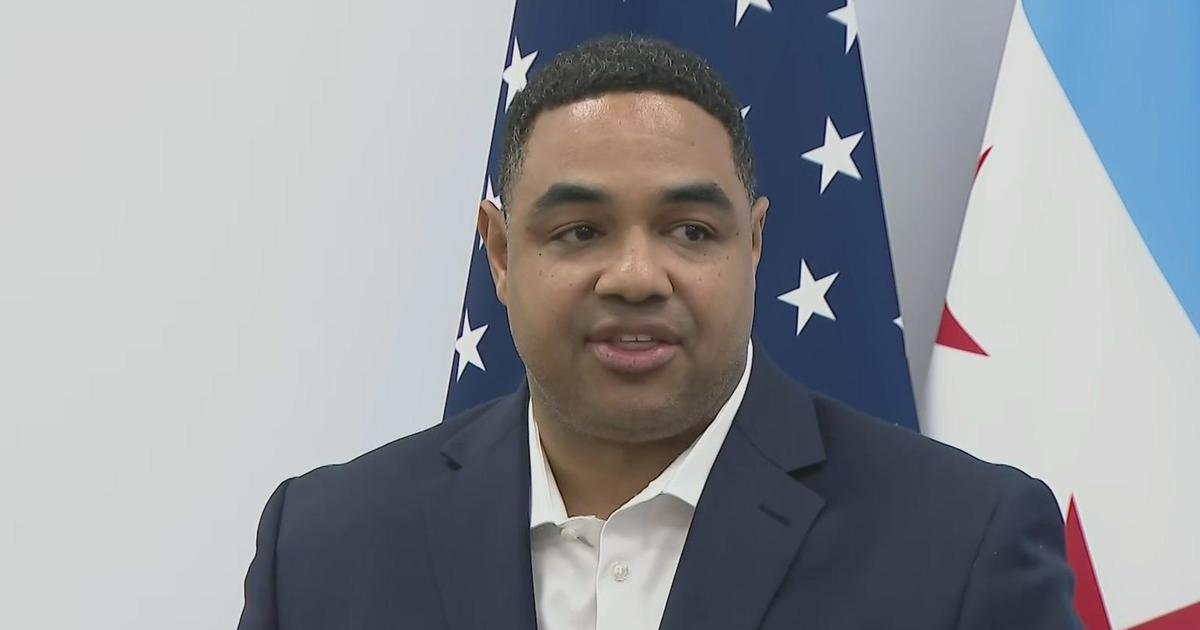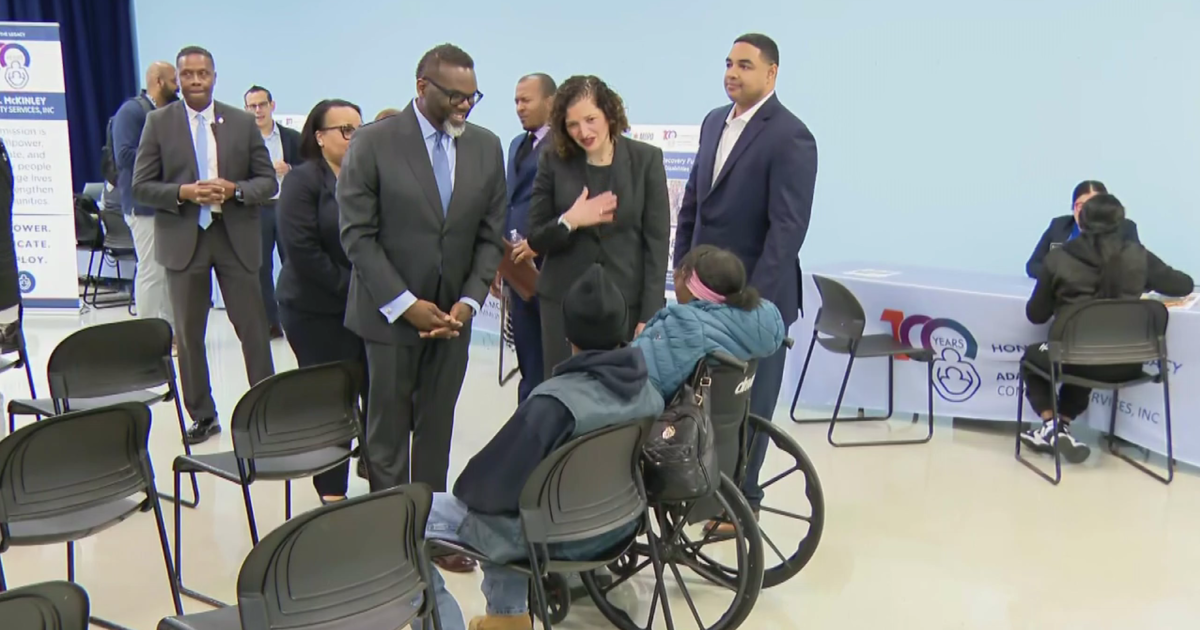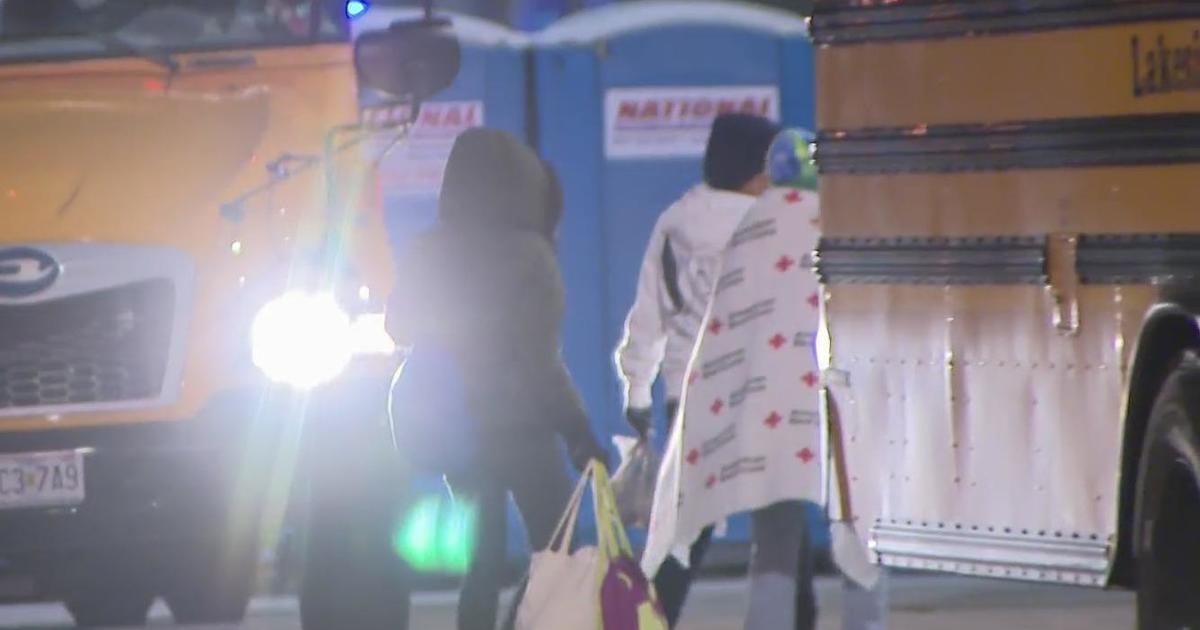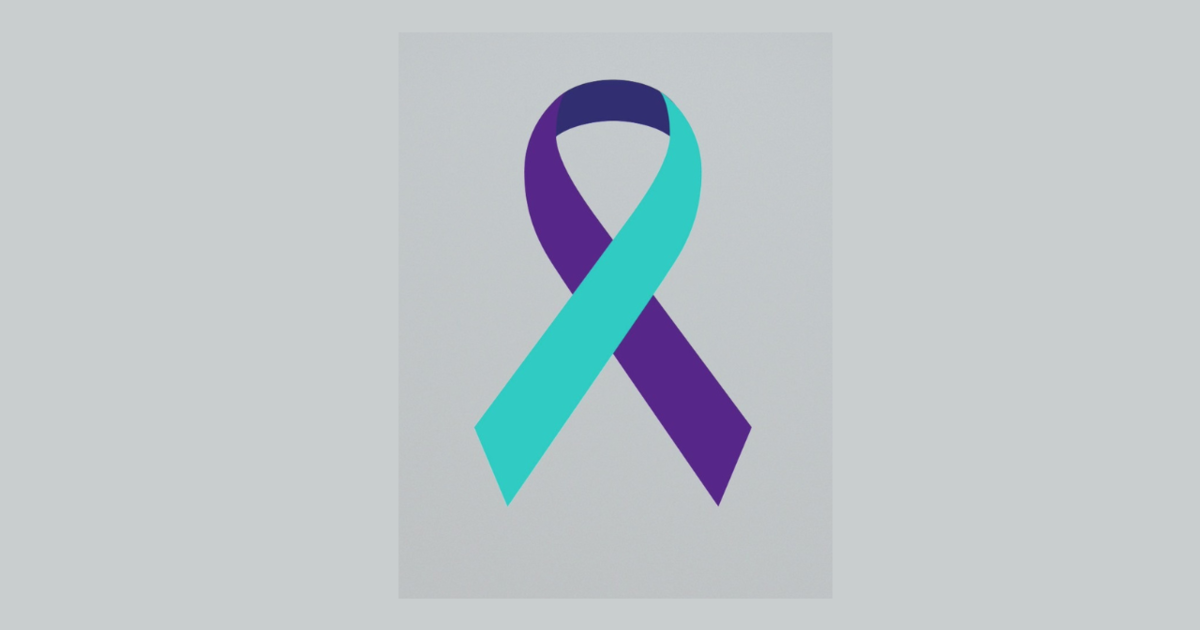Florida Added To Chicago Travel Quarantine Order; Michigan Could Be Next; City's Top Doctor Warns 'This Is The Worst We Are Doing On COVID As A Country Since The Beginning'
CHICAGO (CBS) -- Florida has been added to Chicago's travel quarantine order, requiring people to self-quarantine for 14 days when arriving from states and territories seeing high COVID-19 case counts, and public health officials warned Michigan could be added to the list next week.
Effective Friday, when Florida is added to the list, the quarantine order will include 31 states and Puerto Rico: Alabama, Alaska, Arkansas, Colorado, Delaware, Florida, Idaho, Indiana, Iowa, Kansas, Kentucky, Minnesota, Mississippi, Missouri, Montana, Nebraska, Nevada, New Mexico, North Carolina, North Dakota, Ohio, Oklahoma, Puerto Rico, Rhode Island, South Carolina, South Dakota, Tennessee, Texas, Utah, West Virginia, Wisconsin, and Wyoming.
The list of states included in the order is updated every Tuesday to include states with more than 15 new COVID-19 cases per 100,000 resident population, per day, over a 7-day rolling average; with additions to the list taking effect the following Friday, and removals from the list taking effect immediately. No states were removed from the list this week, but West Virginia and Delaware have reduced their daily case counts to less than 15 per 100,000 population, and if they keep that trend going, will be removed from the travel order next week.
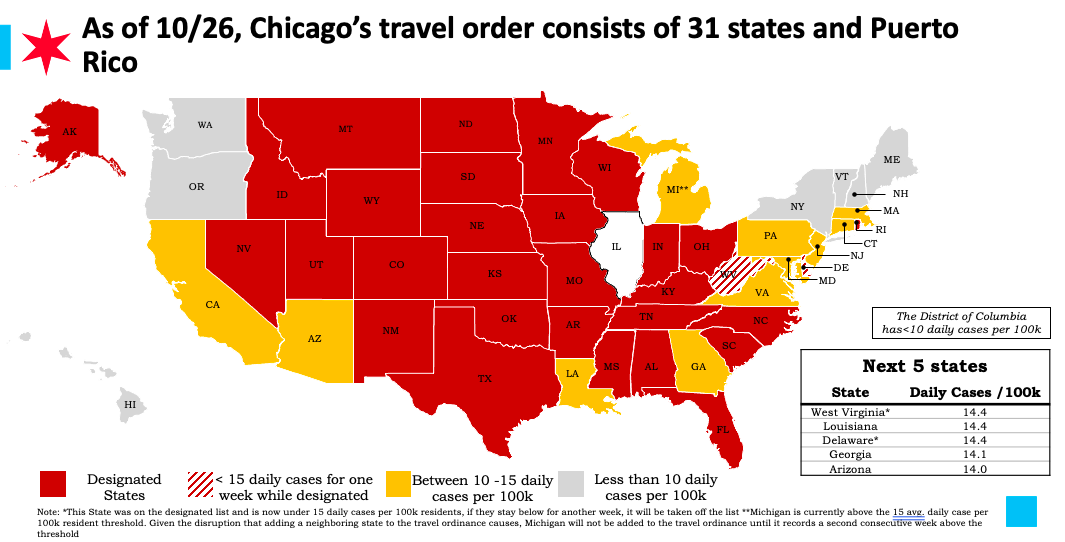
Chicago Department of Public Health Director Dr. Allison Arwady said COVID-19 cases have been on the rise in 45 of 50 states over the past week. Nationwide, cases are up about 26% during that time, according to Arwady.
"This is the worst we are doing on COVID as a country since the beginning. Also true in Illinois, as a state as a whole, we are doing the worst that we've been doing in terms of case count as a state since the beginning of COVID," Arwady said.
The update to the city's travel order comes as the Illinois Department of Public Health reported 4,000 new cases of COVID-19 statewide, as well as 46 additional deaths. Illinois has now reported 4,000 or more cases in a day nine times in the past 13 days, and is averaging 4,587 new cases per day over the past week, far higher than during the first wave, when the state averaged 2,497 new cases per day between May 12 and May 18.
Also From CBS Chicago:
- New Wave Of COVID-19 Has Doctors, Hospitals On Notice
- Baby Found Safe After Mom Said Car Was Stolen With Child Inside
- Tinley Park House Catches Fire After Car Crashes Into It; Driver Missing
While some of the recent increase in new cases can be attributed to a significant increase in testing since the start of the pandemic, the state's positivity rate has been on the rise for three weeks, and hospitalizations from the virus also have been steadily increasing over the past two weeks.
"One in 50 Chicagoans has been infected within the last three weeks," Arwady said.
In Chicago, Arwady said new cases of COVID-19 are growing as fast as they did in late March, and new cases are now doubling every nine days. As of Tuesday, Chicago is averaging 797 new cases per day over the past week, meaning the city could see as many as 1,600 new cases per day in nine days, well exceeding the first surge of the virus in the spring.
"COVID is widespread here in Chicago, and we need you to double down on the things that we know work," Arwady said. That means wearing a mask, keeping your distance from others as much as possible, regularly washing your hands, and limiting any activities that are not essential.
Chicago's quarantine mandate requires anyone who is arriving in the city from states and territories considered to be COVID-19 hotspots to self-isolate for a minimum of 14 days when they arrive in the city, including visitors to Chicago, and residents who are returning from travel to one of the states.
People who regularly travel to border states on the quarantine list for work or school are exempt from the travel order, but should only travel to those states for work or school purposes. Otherwise, if they take part in any non-work or non-school activities while in a state on the list, they are subject to the quarantine order.
Exceptions also apply for those leaving home for medical treatment, or parental shared custody reasons; and for people for whom self-quarantine "is not possible, practicable or advisable."
Otherwise, people who travel to states on the list, even if for less than 24 hours, still need to quarantine upon returning unless deemed an essential worker, a commuting student, or for one of the other exceptions.
While people who violate the quarantine order can face fines of $100-$500 per day, up to $7,000, enforcement is almost entirely on the honor system. The city has said officials are focusing on encouraging people to change their travel patterns, and to delay trips unless they're absolutely necessary.
Although the city has issued warning letters to people they know have violated the quarantine order, officials have not issued any fines.



